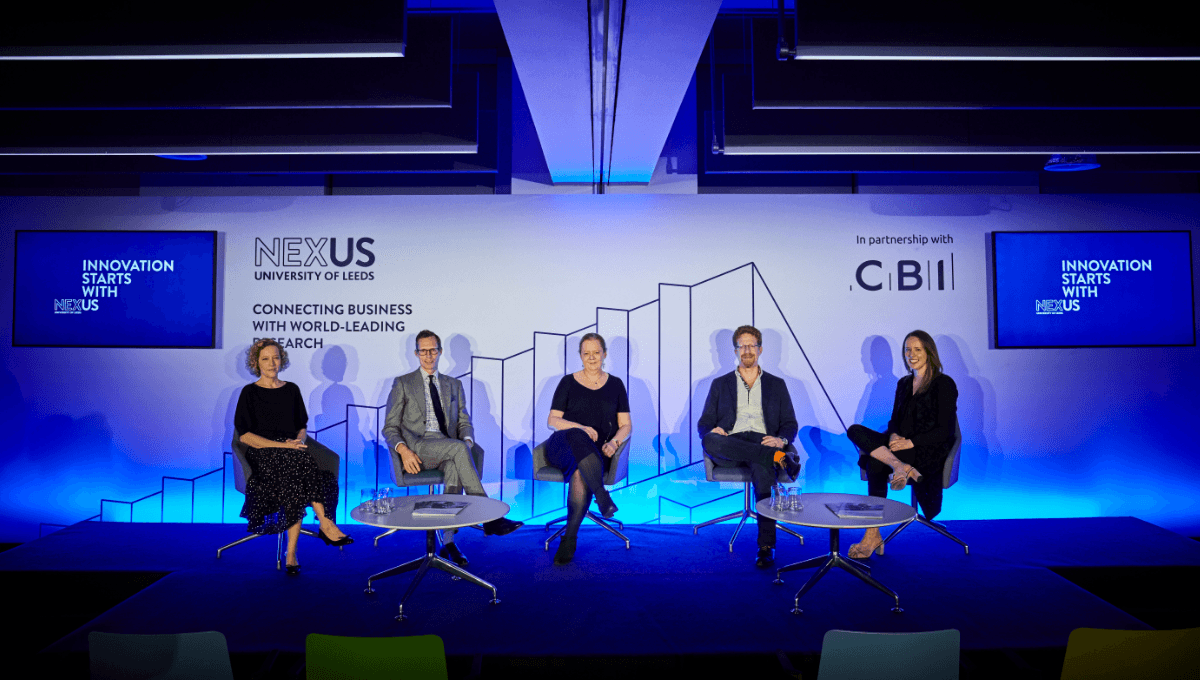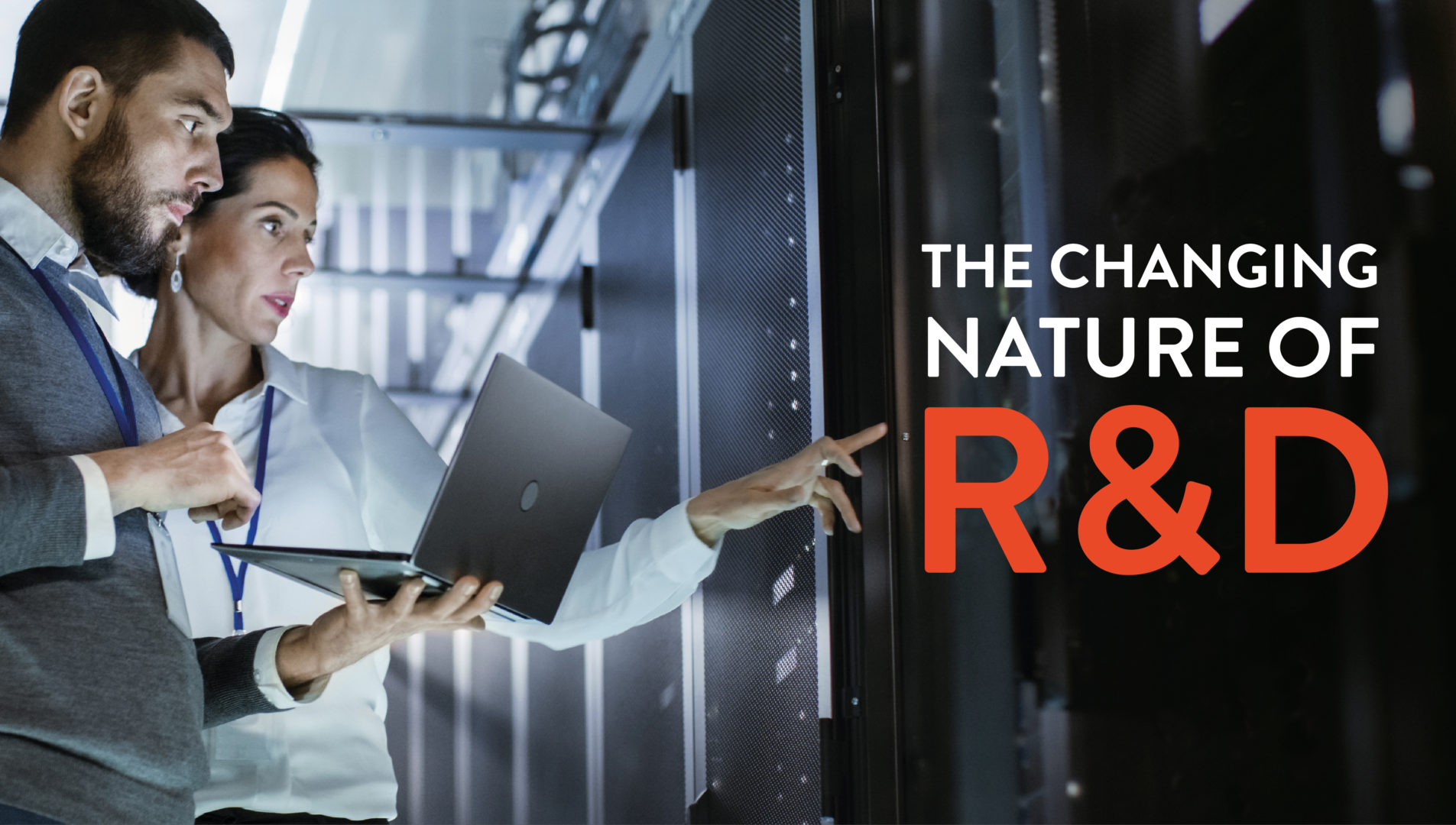‘The Changing Nature of R&D’ – Collaboration works
Professor Chris Gale, Professor of Cardiovascular Medicine and Co-Director of the Leeds Institute for Data Analytics joined us at the official Nexus Launch where we discussed the key findings of the new report ‘The Changing Nature of R&D’. Chris shares his insights on the new report and the wealth of opportunities data presents.
One of the major themes running through ‘The Changing Nature of R&D‘ is that collaborative working between industry and academia adds huge value both economically and societally.
In the healthcare sector, I would add another vital contributor to that collaborative working success which is, of course, the patient.
The primary reason for R&D in healthcare is to achieve patient benefit, so we must involve patients and the public right from the beginning: it’s their condition, their disease, and their experience.
Moreover, we should aspire to involve patients at every stage of the R&D process. For example, co-designed surveys, which are accessible and encourage feedback, will gain much more traction than heavyweight tomes, with many pages of scientific language to plough through.
Increasingly, grant applications and scientific papers require evidence of patient input to demonstrate the translational benefits of new research in human terms and many research committees now have patients as members.
Collaborative working in R&D also requires the collection and use of substantial amounts of data and advanced data analytics is opening up major opportunities for us, particularly in the health sector.
The report, commissioned by the CBI and Nexus, confirms that healthcare is one of the biggest beneficiaries of the new revolution in data-driven technologies, citing early diagnosis through AI and predictive analysis to accelerate drug development, as prime examples of the successful outcomes which can be achieved.

Professor Chris Gale (second left) joins Rebecca Endean, Stuart Sherman and Felicity Burch on the panel discussing 'The Changing Nature of R&D' report findings at the official Nexus launch. The panel was chaired by Broadcaster Cathy Newman (far left).
My own research, funded by the NIHR, studied over 10,000 patients with heart attack across the UK. These bespoke data were linked with routine databases to understand more about the care and outcomes of people with heart attack. Analysing these data, for example, has allowed us to understand much more about patients’ quality of life after heart attack and potentially what lifestyle modifications would have beneficial effects.
A study conducted by Apple and Stanford Medicine is another example of the value of patient data and a demonstration of the increasing role being played by wearables and other digital tools in rapidly gathering large amounts of health data.
Over 400,000 people participated in the Apple Watch study, which aimed to improve the technology used to identify irregular heart rhythms. Early diagnosis of atrial fibrillation (a heart rhythm disorder) and treatment (in higher risk individuals) can reduce the risk of stroke.
Hypothesis-free research and data-driven discovery open up major opportunities for the sector – but of course one must evaluate any new insights carefully.
And we shouldn’t dismiss the societal value of data-driven technologies in R&D for other sectors. Data gathered for one use can often be repurposed to achieve benefits in other areas.
Information on consumer shopping habits has an obvious appeal to brand owners for sales and footfall, for example, but when it gives us data on healthy eating choices and what might trigger or encourage those choices, we also have valuable lifestyle insights.
One of my current research studies looks at walking and cycling to work and its association with cardiovascular disease. The data we gather will also provide useful insights on the wider advantages of active transport to better inform environmental projects and local and national initiatives to reduce pollution.
We are all data points and we are all generating data, constantly. It is what we do with these data that matters. Used responsibly and collaboratively, it can predict, discover and simulate in order to deliver outcomes which will achieve enormous benefits to us all.

The report produced in partnership with the CBI highlights the importance of data & data skills and the vast opportunities they present in helping to achieve the government’s 2.4% R&D growth target.
Chris Gale, Rebecca Endean, Stuart Sherman, Jane Francis, Felicity Burch and Trevor Hardcastle share their thoughts.
